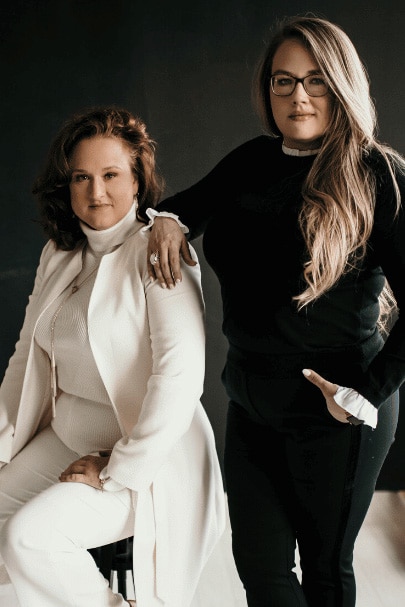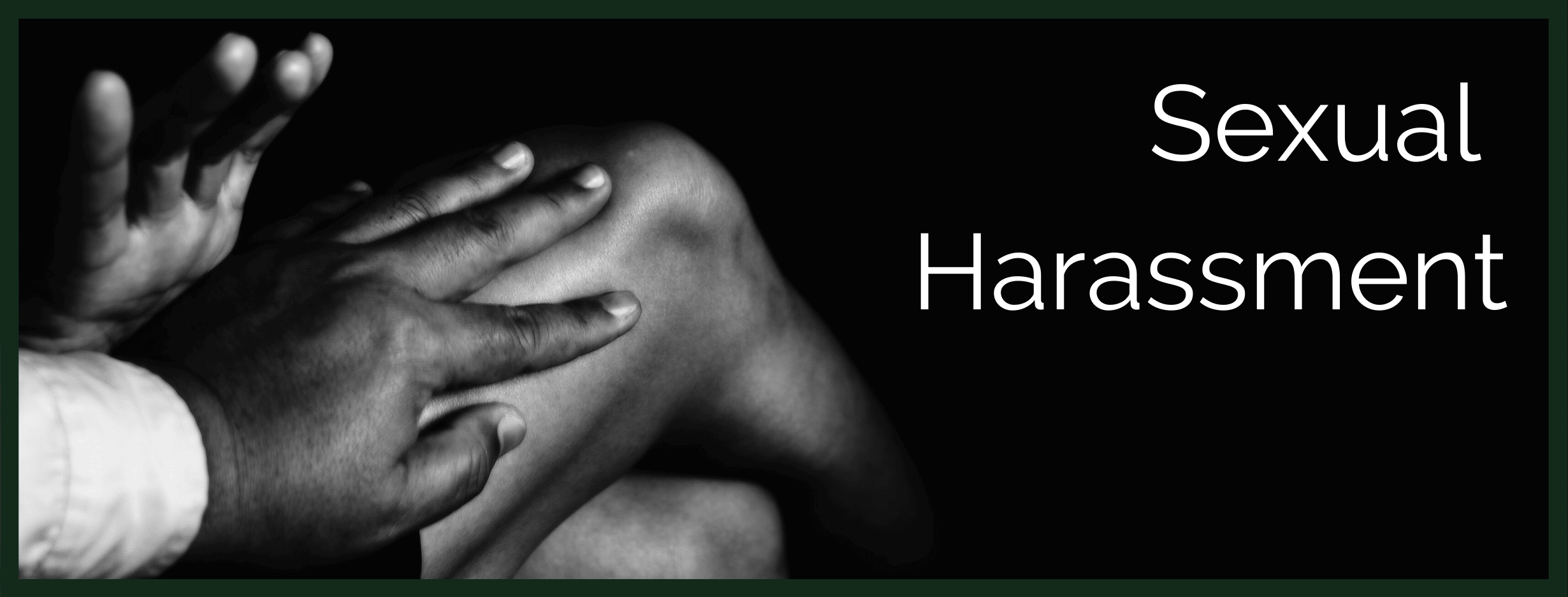Dallas sexual harassment lawyers at Carter Law Group are ready to build a strong and effective case for you. Contact us today. Call (214) 390-4173
Sex Discrimination and Sexual Harassment
According to the Texas Workforce Commission, you can file a discrimination complaint with the TWC Civil Rights Division if you think you may have experienced sexual harassment or sex discrimination in the workplace.
If you prefer, you can hire a competent personal injury law firm like Carter Law Group who specializes in representing victims of sexual harassment and sex discrimination. As a woman owned law firm, we know how difficult it may be to move forward with your complaint without legal counsel. If you want strong, smart women who understand representing you, contact Carter Law Group today. Call (214) 390-4173.
Employees are shielded from sexism and sexual harassment in the workplace by Texas Labor Code Chapter 21 and Title VII of the Civil Rights Act. The law is applicable to all state and local governments, regardless of the size of their workforces, as well as private enterprises with 15 or more employees. If you have a sexual harassment or sex discrimination complaint, Carter Law Group can help you get the compensation you deserve.
Sex Discrimination
Sex discrimination encompasses gender stereotypes and assumptions and occurs when you are treated differently from other employees because you are a male or female (including while pregnant). Denial of employment, termination, promotion, or any other employment-related term, condition, or privilege are examples of unlawful activities.
Sexual assault
Unwelcome advances, solicitations for sexual favors, and inappropriate physical contact are all examples of sexual harassment. Sexual harassment may occur if you experience any of these actions and they unreasonably impair your ability to execute your job duties or create an intimidating, hostile, or offensive work environment. If you experience a negative workplace action as a result of rejecting one or more of those actions, that can constitute sexual harassment. Simple taunting, casual remarks, or isolated occurrences might not qualify as sexual harassment.
Additionally, sexual harassment can happen whether the harasser is a man or a woman. You do not have to be of the opposite sex; the harasser may be your supervisor, an agent of the employer, a supervisor in another department, a coworker, or a non-employee; you do not have to be the target of the harassment; anyone affected by the offensive behavior may be the victim; unlawful sexual harassment may occur without the victim suffering financial harm or being fired; and the harasser’s actions must be unwanted.
It is better if you tell the harasser directly that their actions are unacceptable and that they need to cease. You should make use of any available grievance or complaint procedure with your employer.
The Civil Rights Division and the Equal Employment Opportunity Commission look at all the facts surrounding a complaint, including the nature of the sexual approaches and the environment in which the claimed instances occurred, when looking into complaints of sexual harassment. On the basis of the evidence, each case-by-case decision is made about the claims.
The best method for ending sexual harassment at work is prevention. Employers are urged to take action in order to stop sexual harassment. They should make it very obvious to workers that sexual harassment is not acceptable. They can achieve this by setting up an efficient grievance or complaint procedure and acting promptly and appropriately when an employee complains.
If you feel you have experienced sexual harassment or sex discrimination in the workplace and you feel harmed as a victim, engage a competent personal injury law firm like Carter Law Group who specializes in representing victims of sexual harassment and sex discrimination. As a woman owned law firm, we know how difficult it may be to move forward with your complaint without legal counsel. If you want strong, smart women who understand a woman’s point of view representing you, contact Carter Law Group today. Call (214) 390-4173.
Every worker of every sex at every level in every industry has an absolute right to work free from sexual harassment.
Nevertheless, sex-based discrimination and harassment are rampant. Unfortunately, fear keeps far too many of these cases from seeing the light of day. Fear of losing their jobs, their incomes, and their careers, keeps victims from timely and appropriately reporting sexual harassment and discrimination.
But the tide is changing.
Thanks to the courageous voices in the #MeToo movement and elsewhere, victims are speaking out more often and louder than they ever have before.
The sexual harassment attorneys at Carter Law Group are here to stand with them to bring these injustices into the light of day and get the victims the compensation they deserve.
What is Workplace Sexual Harassment?
The law generally groups sexual harassment in two general categories:
- Quid Pro Quo Harassment: an employer or an agent of the employer requires the employee to perform sexual favors as a condition of employment. For example, quid pro quo sexual harassment occurs when an employer threatens to fire an employee unless the employee performs sexual favors.
- Hostile Work Environment Harassment: when an employer or co-worker makes unwelcome sexual advances that become so severe that they interfere with the victim’s work performance or create a hostile or intimidating work environment, the victim may have a claim for hostile work environment harassment. Because sexual harassment almost always has an impact on an employee’s work performance. Employers often try to use poor work performance as a justification for termination. Because of this, it is very important that a sexual harassment victim properly and quickly report the sexual harassment.
According to the U.S. Equal Employment Opportunity Commission (EEOC), sexual harassment is commonly experienced as:
- Unwelcome verbal conduct such as derogatory jokes, epithets, sexual advances or invitations, and other comments;
- Unwelcome visual conduct such as derogatory and/or sexually-oriented posters, photographs, e-mails, cartoons, and drawings;
- Unwelcome physical conduct such as sexual assault, unwanted touching, groping, or massages, simulated sex acts, blocking normal body movement and interfering with work because of sex, race or any other protected basis; and
- Threats and demands to submit to sexual requests as a condition of continued employment, or to avoid some other loss, and offers of employment benefits in return for sexual favors.
How Do I Stop Unlawful Harassment?
If you are being sexually harassed at work, take these steps:
- Tell your harasser to stop, every single time. Tell the harasser that their conduct is unwelcome, illegal, and must immediately stop.
- Report the incident to your supervisor, human resources, and the harasser’s supervisor.
- Submit your complaint in writing. If your complaint is verbal, follow it up with an e-mail.
- Include in the complaint that the harassment is a result of your sex or other protected class membership.
- Keep a record of some sort of every instance of harassment—a journal, for instance.
- Do not resign. Before resigning, contact a sexual harassment attorney at Carter Law Group to discuss your options.
- If the harassment doesn’t stop or you’re dissatisfied with your employer’s response, contact the EEOC and Texas Workforce Commission. If you can, seek legal advice from a Dallas employment lawyer before you file an administrative complaint with the EEOC or Texas labor board.
Damages in a Sexual Harassment Case
- Lost wages and benefits
- Lost earning capacity
- Lost employment opportunity
- Medical expenses
- Emotional distress
- Injury to reputation
The victim’s position within the employer’s organization has an impact on the extent of monetary damages.
Sexual Harassment Is Not Just a Woman’s Problem
Sexual harassment impacts male, transgender, cisgender, and non-binary employees, too. And perpetrators can be of either the same or opposite sex. Carter Law Group passionately advocates for all of its sexual harassment clients – regardless of their gender or their harasser’s gender.
Let’s meet. And let’s right these wrongs. Together.





